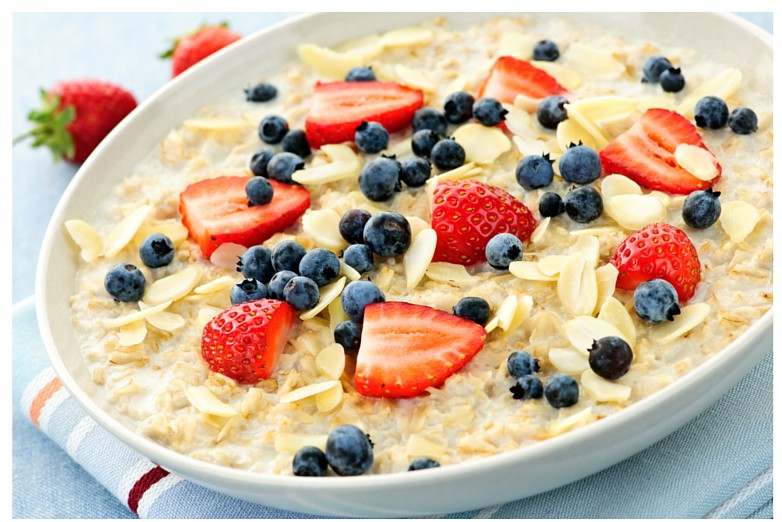Optimal fertility depends on a variety of factors. Both women and men may struggle with fertility for many reasons. However, no matter the cause, I believe a strong foundation of diet and health is critical. We can influence our health greatly by ensuring we get restful sleep, exercise regularly, and consume a clean, nutrient-dense diet. Diet can be an overwhelming terrain to traverse on your own! There are countless differing opinions, fad-diets, super foods, and old wives’ tales to be sorted through. So in this article, I am going to help you start optimizing your diet for fertility by focusing on what to pay attention to as a way of building your strong foundation.

What are foods that I recommend to boost fertility?
There is no one food that has the magical ingredient for fertility. Instead, you need to focus on eating a variety of whole foods to ensure you receive all of the necessary nutrients to support reproductive health and function.
I focus on the following three core areas with my fertility patients.
1) Eat Enough Protein
Most people are unaware of the optimal amount of protein they should be consuming per day, and what that amount even looks like. The most common deficiency I will often see in diet logs is a lack of protein, especially at breakfast! Protein is important for making enzymes, hormones and antibodies for optimal immune function. Protein also helps to stabilize our blood sugar levels, which is important for overall health, especially fertility. Research at the Delaware Institute for Reproductive Medicine showed that 25-30% of caloric intake from protein improved health and quality of the egg/embryo, and subsequently increased pregnancy rates. You can roughly calculate how much daily protein you should consume by multiplying your weight in KG by 0.8. This will give you the grams required per day.
In terms of protein sources, I always recommend choosing organic, grass-fed and/or free-range animal protein. When optimizing your fertility, it is especially important to decrease your exposure to unnecessary antibiotics and/or hormones that may be used in conventional farming practices. Wild, cold-water fish is an excellent source of protein and essential fatty acids, which aid in the production/regulation of hormones, inflammation and menstrual cycle health.

Organic dairy can be another healthy source of protein, so long as you have no signs of intolerance or sensitivity (gas, bloating, constipation, rashes). Excess amounts of dairy can cause mucous formation and congestion in some people, so I recommend eating dairy products in moderation.
If following a vegetarian or vegan diet, I discuss with clients how to ensure they are eating a complete protein source at every meal by the proper combination of plant protein sources. Most plant proteins on their own are not complete proteins, and if you are following a vegetarian or vegan diet, you need all amino acids in your diet for optimal health.
The following is a chart I use with vegetarian/vegan patients to show them how to combine plant-based protein sources:
| 1 | + | 2 | + | 3 |
| whole grains | Legumes | Nuts/Seeds
their oils and butter |
||
| Brown/Red rice | Organic peanuts | Almonds | ||
| Quinoa | Organic Soy | Sunflower | ||
| Millet | Lentils | Flax seeds/meal | ||
| Whole wheat | Beans-allsorts | pumpkin seed | ||
| Buckwheat | Chickpeas | Sesame seeds | ||
| Kamut, etc | Split peas, etc | Pine nuts, etc |
Combine any member of 1 + 2 OR 2 + 3 = complete protein
- Eat a lot of organic vegetables and fruit
You require a multitude of plant-based nutrients for optimal function of every aspect of your health. Vitamins, minerals and phytonutrients play a huge role in the regulation of most processes that you depend on every day.
Vegetables
I tell my patients that I want them to be getting at least 5-7 servings of vegetables per day, and that at each meal most of their plate should be vegetables — yes, even at breakfast. You want to ensure that you consume a range of all the available phytochemicals (plant nutrients), and to do that, I encourage “eating a rainbow” every day. No, this does not mean grab a bag of skittles! It means ensuring that you are eating foods of different colours. Tracking your food may reveal that you get a lot of red, yellow and green foods, but are falling short on orange and blue. Great! Now you know what to add more of to the diet!
Fruit
Fruit is also important, especially for their anti-oxidant properties. I suggest eating fruit away from a full meal, as fruit digests very quickly in the body. When mixed with a heavy meal, fruit can cause fermentation in the gut; cue the smelly gas. I recommend 2-3 servings of fruit per day, focused on the lower glycemic fruits (berries) as opposed to higher glycemic options (melons).
- Whole grains and fiber
Whole grains are naturally more complex than the processed grains we commonly consume in the Standard North American (SAD) diet. Complex carbohydrates and grains are much better at balancing our blood sugar and providing the body beneficial vitamins and fiber. Fiber is critical for blood sugar balance and the natural processing of excess hormones. Note that an excess of certain hormones can be a cause of infertility, and supporting the body’s natural ability in balancing hormone levels can directly improve fertility.

Fiber also helps to keep our bowels regular, which is integral for overall health! Choose whole wheat bread, rice, whole-grain pasta, and quinoa. If gluten sensitive, quinoa, quinoa pasta, and whole grain gluten-free breads can be an option. Beware of gluten-free products that use corn as a substitute grain. Corn is not considered a particularly nutritious grain and I don’t recommend consuming it in excess, since it too tends to be excessively processed.
One more important dietary recommendation I discuss often is to include healthy sources of fat in the diet — avocado, olive oil, coconut oil, nuts, seeds — and to drink at least 2L of clean water daily.
What are foods that you recommend staying away from or limiting your consumption of if you are trying to get pregnant?
Foods I typically suggest to limit would be:
- Trans fats: those are not good for anyone!
- Refined carbohydrates and sugars: recipe for blood sugar dysregulation and immune system depletion
- Fruit juices: same as above
- Alcohol: can affect both sperm health and ovulation
- Caffeine: there are some studies linked to infertility and miscarriages. I advise women to follow the suggested daily amounts that are safe in pregnancy if eliminating caffeine is too much to begin with.
- Excess sugar
Is there an optimal diet (paleo, vegan, vegetarian etc) that you would recommend or not recommend if someone is trying to get pregnant?
I do not typically have one diet that I suggest for everyone, as every body is different. Some may require a specific dietary plan while others will flourish with following general healthy dietary guidelines. I aim to work within the patient’s belief systems around diet (ie: if someone is vegetarian for ethical reasons) and follow the recommendations discussed above.
I typically never recommend a vegan or vegetarian diet, as there are many nutrients that are more difficult to get in a purely plant-based diet. However, I do think it is possible to maintain a healthy foundation with a vegan/vegetarian diet if that is the wish of the patient.
Often, regardless of the diet consumed, nutritional supplementation will be a part of the plan to ensure optimal fertility nutrient requirements are met. Typically, iron, vitamin B12 and zinc are more difficult to get in a vegan/vegetarian diet. Iron and zinc are very important for fertility, so we want to make sure that we supplement accordingly.
What would be an optimal day of eating for someone who is trying to get pregnant and wants to boost his/her fertility?
This can be completely different for every person! I will give an example of a day for a person with no dietary restrictions. Know that this is not the perfect day or the only way to eat. Many modifications could be made and still be a balanced and healthy day.
Breakfast:
- 2 eggs prepared to your preference (protein)
- Side of green salad with cucumber, radish and green onion. Drizzle olive oil and balsamic vinegar (vegetables + Fat)
- Slice of whole grain toast with mashed avocado (whole grains/ fibre/ fat)
- Breakfast is such an important meal of our day. It sets the tone for our blood sugar regulation for the rest of the day and provides us with the kick-start of energy for best performance, mood and energy levels.
- Tip: Eggs are naturally high in choline. Choline is a lesser-known nutrient important for both fertility and healthy development of the fetus.
- Rushed in the morning?? Consider making egg “muffins” by whisking together a dozen eggs with a variety of vegetables and baking them in a muffin tin. You will have a ready-to-grab breakfast every morning, as these will keep in the fridge for up to a week!

Mid-morning snack: Apple slices with nut butter (fruit + protein/fat)
- Pairing fruit with a protein or fat source helps to decrease the quick absorption of the sugar fruit thus preventing a spike in blood sugar
Lunch:
- Big bowl of kale salad with quinoa, mushrooms, tomato, onion, hempseeds, cucumber and paired with your choice of protein (chicken breast, salmon etc) and drizzled with olive oil and balsamic vinegar (protein + vegetables + grain + fat)
- Optional: add avocado or nuts for extra fat source
Mid-afternoon snack: Carrots and snow peas dipped in hummus (vegetables + protein)
Dinner:
- Roasted vegetables (carrots, sweet potatoes, beets, broccoli), and protein source (beef, chicken, fish, chickpea burger etc). (vegetables + protein)
- Remember: ½ your plate of vegetables! Drizzle the vegetables with a bit of olive oil before eating for your fat source at this meal.
Dessert/ Bed-time snack (optional):
- Not everyone eats after dinner and that is okay. If you ate a balanced diet throughout the day, you should be satiated until breakfast the next morning. However, it doesn’t mean it’s bad to eat a small snack before bed if you need it.
- Try to ensure some protein source so that your blood sugar stays balanced over the night.
- Option: berries with a dollop of organic yogurt, sprinkled with cinnamon
- Tip: sprinkling cinnamon on any fruit you consume is a helpful way to prevent blood sugar spiking too quickly, as cinnamon is a natural hypo-glycemic agent! And it’s delicious!
Parting Thoughts
I hope you’ve received the overall message that there is no perfect diet, whether to optimize fertility or on a day-to-day basis. Most important is to consume a wide variety of foods, emphasizing all colours of the rainbow and a good serving of vegetables at every meal. For fertility specifically, adequate protein, fat and fiber are also essential.
To determine the best diet for you and to further discuss what nutritional supplements can benefit fertility, I also recommend consulting with a naturopathic doctor and/or holistic nutritionist.
Dr. Jennifer Keller is a naturopathic doctor with a practice focus in women’s and paediatric health. She works with the Ottawa Integrative Health Centre at both their Carling Ave and Ottawa Birth and Wellness Centre locations. She and her husband also own and practice on their property in rural Ottawa in their Yurt clinic. To learn more about how to work with Dr. Jenn visit www.DrJenniferKellerND.com .

Leave a Reply